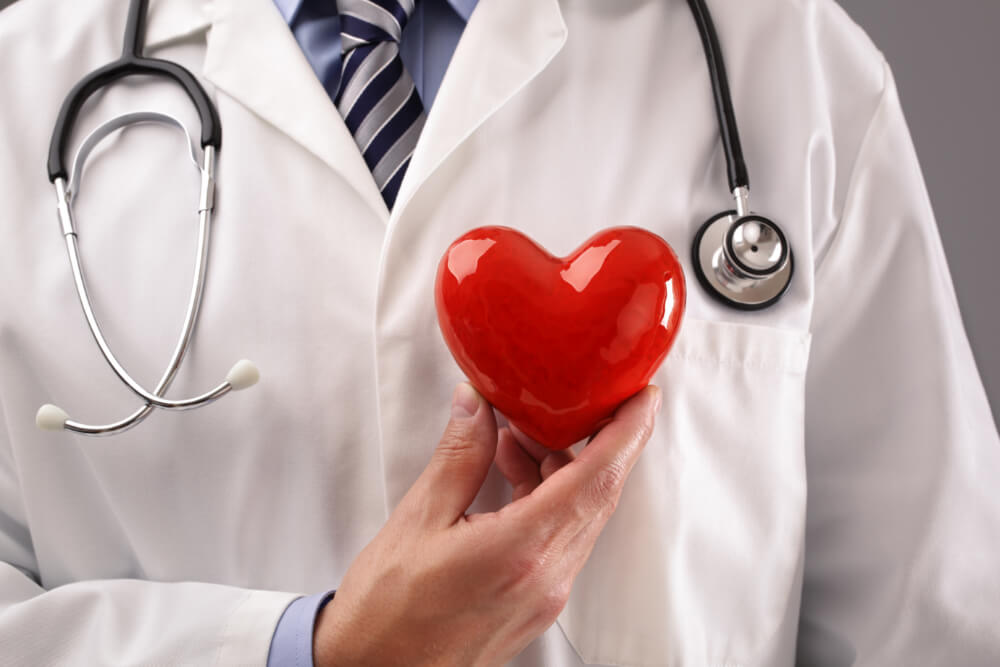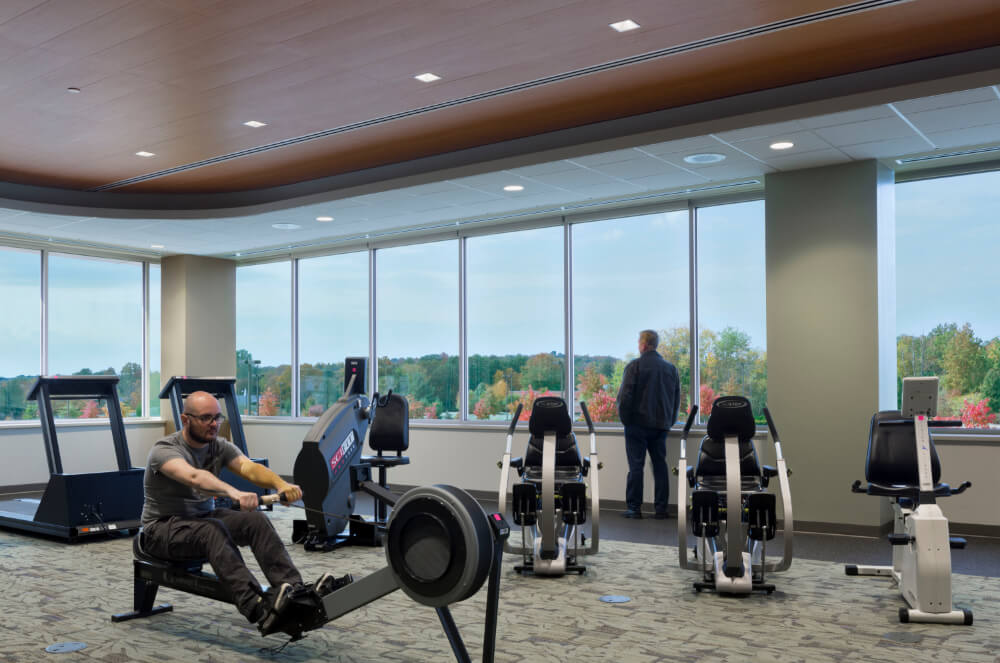Cardiac Diagnostic Testing
At Garnet Health, we offer state-of-the-art cardiac diagnostic technology in Middletown, Harris and Callicoon, NY.
Find a Cardiologist Location SearchBody
Advanced Cardiac Diagnostic Testing
Garnet Health provides our community with state-of-the-art diagnostic technology without having to travel outside the region. Our services are available across our hospital locations in Middletown, Harris and Callicoon, NY.
Your heart care is of paramount importance to our team, and Garnet Health is proud to be a cardiovascular health leader in the region. To learn more about your options for comprehensive heart care at Garnet Health, speak with your primary care doctor or your cardiologist.
To schedule at diagnostic testing service, contact our Diagnostic scheduling team:
- Garnet Health Medical Center in Middletown: 866-676-2837
- Garnet Health Medical Center - Catskills, Harris Campus: 845-794-3300 ext. 2226
- Garnet Health Medical Center - Catskills, Callicoon Campus: 845-887-5530 or 845-887-5380
Receiving Test Results
Once images are taken, they are immediately available for review by your doctor through our secure Web viewer. Test results are delivered electronically via our GE IntegradWeb Picture Archive Computer System (PACS) to aid in fast diagnosis. To request a copy of your diagnostic imaging exam, call us at: 845-333-1222
You may also login to your MyChart account to view your results.
Our Comprehensive Diagnostic Services
We are committed to providing patients and their families with the highest quality and most comprehensive diagnostic care available. We employ cutting-edge technologies through every phase of treatment. For cardiology patients, our most common diagnostic procedures include:
Echocardiogram
A diagnostic test that uses sound waves to create a moving picture of your heart. During the test, high-frequency sound waves are used to provide images of the heart’s valves and chambers. Your cardiologist uses the echocardiogram to evaluate your heart’s function and determine the potential presence of disease. Echocardiograms also help physicians determine the effectiveness of medical or surgical treatments and monitor the progress of valve disease.
Electrocardiogram (EKG)
An electrocardiogram (EKG) records the electrical activity of your heart. It is an important part of the initial evaluation of a patient who is suspected to have a heart-related problem. During the test, electrodes (conducting patches) are applied to your chest, arms and legs. Small wires are then used to connect the electrodes to an EKG machine. The electrical activity created by your heart is processed by the EKG machine and then printed on a special graph paper. This information is evaluated by your cardiologist. The EKG test is painless and takes just a few minutes.
Trans-Esophageal Echocardiograms (TEE)
A TEE uses high-frequency sound waves, providing clear moving pictures of your heart. This test is similar to a standard echocardiogram, except that the pictures of the heart come from inside the esophagus rather than through the chest wall. The sound waves are sent through the body with a device called a transducer which is attached to a tube and carefully placed down your esophagus.
Stress Test
Sometimes called a treadmill test or exercise test, a stress test helps a physician find out how well your heart handles work. As your body works harder during the test, it requires more oxygen, so the heart must pump more blood. This test can show if the blood supply is reduced in the arteries that supply the heart. It also helps physicians determine the type and level of exercise that is appropriate for a patient. Depending on the results of the stress test, your physician may recommend more tests, including a cardiac thallium viability test or cardiac catheterization.
We also offer pharmacological stress tests and nuclear stress tests.
Tilt Table Test
This test is used to determine if a sudden change in heart rate or blood pressure is causing a patient’s fainting episodes. The tilt table test shows how your heart rate and blood pressure respond to a change in position from lying down to standing up. During the test, an intravenous line (IV) (a small plastic tube in a vein) is usually introduced in case medications need to be given during the test. A catheter also may be placed in the artery to monitor blood pressure from inside the artery. If the cause of the fainting spells is found, medications can be administered through the IV line to help prevent the episode during testing.
Cardiac Thallium Viability Testing
Using a specialized Gamma Camera, images of your heart are obtained to show the viable portions of myocardial tissues and can assist in diagnosing heart disease. Through an intravenous line (IV), you will be injected with a radioactive material called thallium that allows the camera to gather the images. The test is used to show how well blood flows to the heart muscle.
The thallium viability test is useful to determine:
- Extent of a coronary artery blockage
- Prognosis of patients who’ve suffered a heart attack
- Effectiveness of cardiac procedures completed to improve circulation in coronary arteries
- Cause(s) of chest pain
- Level of exercise that a patient can safely perform
Cardioversion
A brief testing procedure where an electrical shock is delivered to your heart to convert an abnormal heart rhythm back to a normal rhythm. Cardioversion is used in emergency situations to correct a rapid abnormal rhythm associated with faintness, low blood pressure, chest pain, difficulty breathing or loss of consciousness. It can be administered chemically or electrically. Chemical cardioversion uses anti-arrhythmia medications to restore your heart’s normal rhythm. Electrical cardioversion safely uses electrical shock, delivered through electrodes which are applied to the skin on the chest and back.
Holter Monitor
This mobile device provides a continuous recording of your heart rhythm during normal activity, giving doctors a constant reading of your heart rate and rhythm. To perform the test, electrodes are placed on your chest, and attached to a small recording monitor. This battery-operated monitor is carried in a pocket or small pouch worn around your neck or waist for 24 to 48 hours. The holter monitor records your heart’s electrical activity. After conclusion of the test period, approximately 24 to 48 hours based on the physician's orders, your cardiologist will review the monitor’s data to see if there have been any irregular heart rhythms.
Pacemaker Diagnostic Services
A pacemaker is a small, battery-operated device that helps your heart beat in a regular rhythm. The device sends electrical impulses to your heart to help it function properly. Pacemaker checks are conducted one-on-one with a physician for reprogramming, battery replacements and overall function status are also conducted to assure proper performance. Transtelephonic services are also available allowing the patient to have a diagnostic evaluation over the phone.
Pulmonary function testing
Pulmonary function tests (PFTs) are a group of tests that measure how well your lungs work. This includes how well you’re able to breathe and how effective your lungs are able to bring oxygen to the rest of your body.
Your doctor may order these tests if you’re having symptoms of lung problems as part of a routine physical to monitor how effective your treatment is if you have a lung disease, such as asthma to assess how well your lungs are working before you have surgery. PFTs are also known as spirometry or lung function tests.
Electroencephalogram (EEG)
An electroencephalogram (EEG) is a test used to evaluate the electrical activity in the brain. Brain cells communicate with each other through electrical impulses. An EEG can be used to help detect potential problems associated with this activity.
An EEG tracks and records brain wave patterns. Small flat metal discs called electrodes are attached to the scalp with wires. The electrodes analyze the electrical impulses in the brain and send signals to a computer that records the results.
These lines allow doctors to quickly assess whether there are abnormal patterns. Any irregularities may be a sign of brain disorders.

Heart Conditions We Treat
From the moment a diagnosis is confirmed, the cardiovascular specialists at Garnet Health will develop a personalized treatment plan for you.
Learn more
Cardiac Rehabilitation
Cardiac rehabilitation is specialized, medically supervised support for people who have experienced heart-related conditions.
Learn moreLocations
Garnet Health Medical Center - Catskills, Callicoon Campus
8881 Route 97
Callicoon, NY 12723
Peter Frommer, M.D. Heart Center at Garnet Health Medical Center
707 East Main Street
Middletown, NY 10940
Garnet Health Medical Center - Catskills, Harris Campus
68 Harris Bushville Road
Harris, NY 12742


